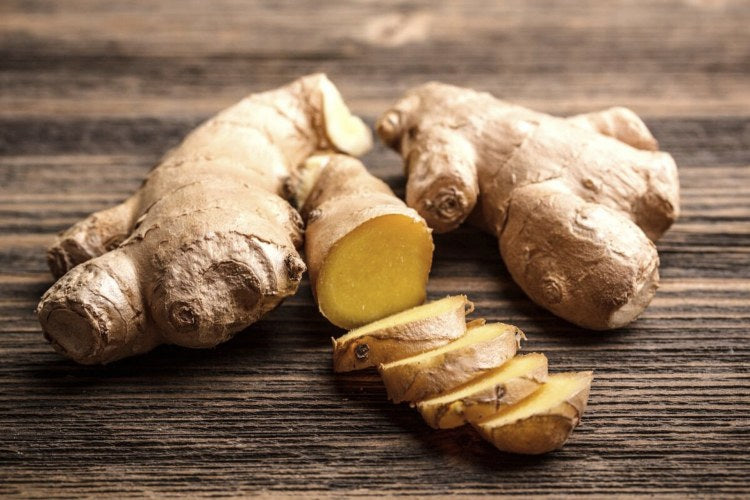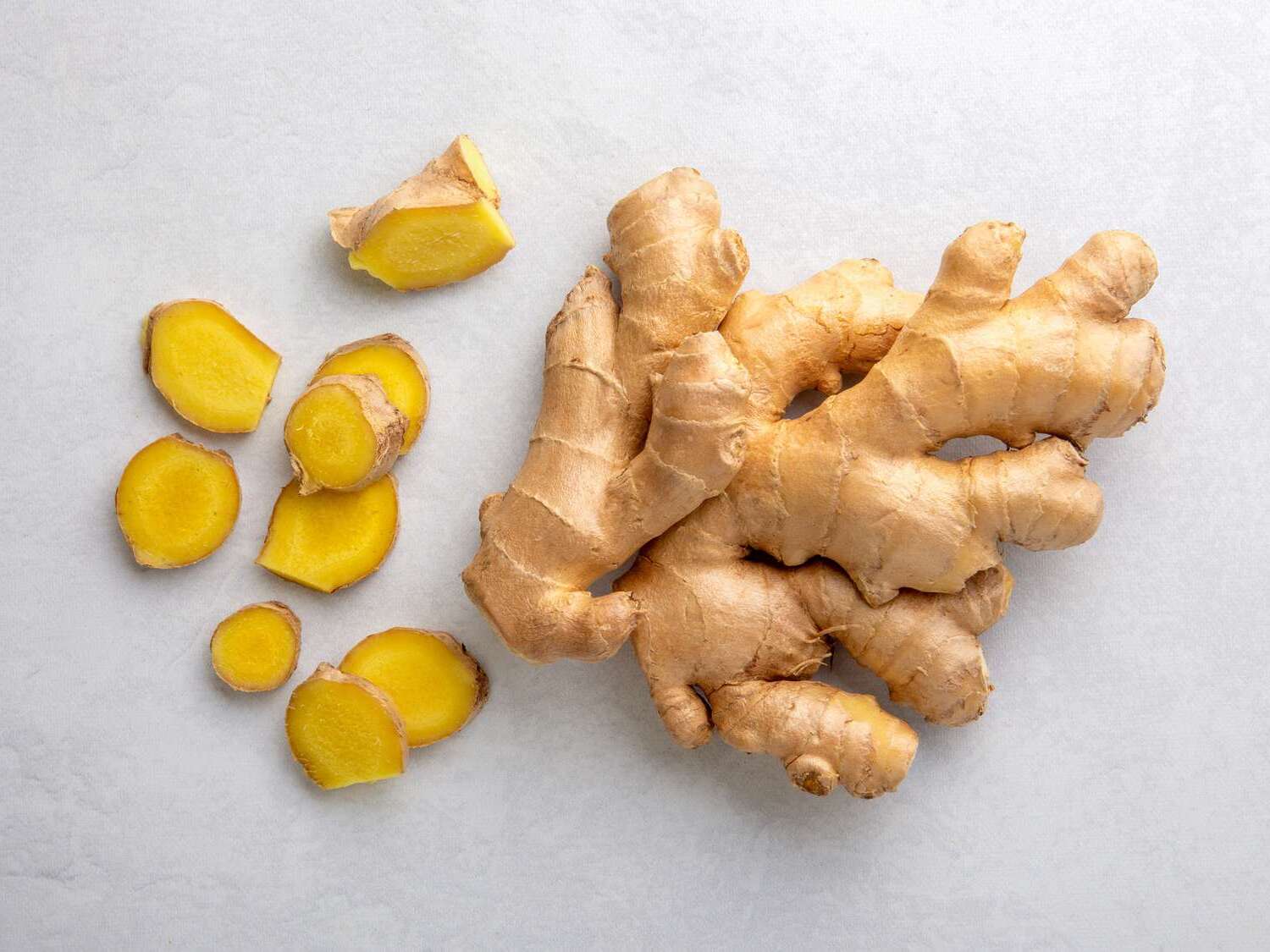Ginger is more than just a kitchen staple; it’s a powerhouse of health benefits and fascinating history. This humble root has been cherished across cultures and centuries for its unique flavor, medicinal properties, and versatile uses. Let’s delve into some intriguing facts about ginger that will make you appreciate this spice even more.
Ginger’s Ancient Origins
Ginger has been used for thousands of years, with its origins tracing back to Southeast Asia. It played a significant role in traditional medicine and cuisine in ancient civilizations. The Chinese and Indians were among the first to discover its health benefits, incorporating it into their daily lives. It was so valuable that it was often traded as currency in ancient times.
Ginger’s Journey to the West
The journey of ginger to the Western world is a story of exploration and trade. Arab traders were instrumental in introducing ginger to Europe. During the Roman Empire, it was a prized commodity. The spice trade routes helped spread its popularity, making it a staple in European kitchens by the Middle Ages.
Culinary Uses of Ginger
In the culinary world, ginger is incredibly versatile. Fresh ginger root is a common ingredient in Asian dishes, adding a zesty kick to stir-fries, soups, and marinades. Ground ginger is popular in baking, giving a warm, spicy flavor to cookies, cakes, and breads. Ginger tea, made from fresh or dried ginger, is a soothing beverage enjoyed worldwide.
Ginger in Traditional Medicine
Ginger’s medicinal properties have been recognized for centuries. In traditional Chinese and Ayurvedic medicine, it is used to treat a variety of ailments. Its anti-inflammatory and antioxidant effects are believed to help with digestion, reduce nausea, and fight off infections. Modern science has validated many of these traditional uses.
Ginger and Nausea Relief
One of the most well-known benefits of ginger is its ability to relieve nausea. Whether it’s motion sickness, morning sickness during pregnancy, or chemotherapy-induced nausea, ginger has been shown to be effective. A cup of ginger tea or a piece of ginger candy can work wonders in settling an upset stomach.
Anti-Inflammatory Power of Ginger
Ginger contains potent anti-inflammatory compounds called gingerols. These compounds help reduce inflammation in the body, which can be beneficial for conditions like arthritis. Regular consumption of ginger can lead to significant improvements in pain and stiffness for those suffering from inflammatory conditions.
Ginger and Digestive Health
Ginger is a boon for digestive health. It stimulates saliva, bile, and gastric juices, aiding in the digestion process. It can help alleviate bloating, gas, and indigestion. Including ginger in your diet can lead to a healthier digestive system and improved overall gut health.
Immune-Boosting Properties
The immune-boosting properties of ginger are impressive. It has been used traditionally to fight off colds and flu. Its antimicrobial properties help combat harmful bacteria and viruses. Drinking ginger tea during the cold season can help strengthen your immune system and keep infections at bay.
Ginger’s Role in Weight Loss
Ginger can also be an ally in weight loss efforts. It helps increase metabolism and promotes fat burning. Additionally, it can suppress appetite, making it easier to stick to a healthy diet. Incorporating ginger into your daily routine can support your weight loss goals and overall wellness.
Ginger in Skin Care
Ginger’s benefits extend to skincare as well. Its antioxidant properties help protect the skin from damage caused by free radicals. It can improve skin elasticity, reduce signs of aging, and give the skin a healthy glow. Applying ginger-infused products or using homemade ginger masks can enhance your skincare regimen.
Ginger in Hair Care
Ginger is also beneficial for hair health. It can stimulate hair growth, reduce dandruff, and improve scalp health. The anti-inflammatory properties of ginger help soothe an irritated scalp, promoting healthier hair growth. Using ginger oil or ginger-based hair products can lead to stronger, shinier hair.
Ginger in Aromatherapy
The aromatic properties of ginger make it a popular choice in aromatherapy. Its warm, spicy scent is known to boost mood, reduce stress, and increase energy levels. Ginger essential oil can be used in diffusers, massages, or baths to reap these benefits and create a calming atmosphere.
Ginger as a Natural Preservative
Ginger’s antimicrobial properties make it an excellent natural preservative. In traditional cooking, it is often used to extend the shelf life of perishable foods. The compounds in ginger can inhibit the growth of bacteria and fungi, helping keep food fresh for longer periods.
The Fascinating World of Ginger Beer

Ginger beer is a delightful beverage with a rich history. Originating in England in the 18th century, it was initially brewed as an alcoholic drink. Today, it is enjoyed both as a soft drink and in cocktails like the famous Moscow Mule. The spicy, refreshing taste of ginger beer makes it a favorite among many.
Growing Your Own Ginger
Ginger is relatively easy to grow at home. It thrives in warm, humid climates and can be grown in pots or directly in the ground. All you need is a fresh ginger root with a visible bud, well-drained soil, and a bit of patience. Growing your own ginger allows you to enjoy fresh, organic ginger year-round.
Ginger in Modern Research
Modern research continues to uncover new benefits of ginger. Studies have shown its potential in preventing cancer, improving brain function, and managing diabetes. The bioactive compounds in ginger are being studied for their therapeutic effects, promising exciting possibilities for future health applications.
The Cultural Significance of Ginger
Ginger holds a special place in various cultures around the world. In many Asian countries, it is considered a symbol of health and longevity. It is used in rituals, traditional ceremonies, and festive cuisines. The cultural significance of ginger adds to its rich legacy and continued relevance.
Cooking Tips and Tricks with Ginger
When it comes to cooking with ginger, there are a few tips and tricks to keep in mind. Fresh ginger can be stored in the refrigerator or freezer to extend its shelf life. Peeling ginger with a spoon can help remove the skin without wasting too much of the root. Adding ginger early in the cooking process will give a milder flavor, while adding it towards the end will provide a more intense taste.
The Varieties of Ginger
There are several varieties of ginger, each with its own unique flavor and characteristics. Some of the most popular types include Chinese ginger, Indian ginger, and Jamaican ginger. Exploring different varieties can add a new dimension to your culinary adventures and enhance your appreciation for this versatile spice.
Ginger in Beverages
Ginger’s spicy flavor makes it a popular ingredient in various beverages. From ginger ale and ginger beer to ginger tea and smoothies, the possibilities are endless. These drinks are not only delicious but also offer the health benefits of ginger, making them a great addition to your diet.
Creative Uses of Ginger
Beyond its traditional uses, ginger can be incorporated into your daily routine in creative ways. Try adding grated ginger to your morning oatmeal, blending it into salad dressings, or infusing it in honey for a unique twist. The versatility of ginger allows you to experiment and discover new favorites.
Ginger and Mental Health
Ginger’s impact on mental health is an emerging area of interest. Its anti-inflammatory and antioxidant properties are believed to benefit brain health, potentially improving memory and cognitive function. Incorporating ginger into your diet can support not only your physical health but also your mental well-being.
Ginger and Athletic Performance
For athletes and fitness enthusiasts, ginger can be a valuable addition to their regimen. Its anti-inflammatory effects can help reduce muscle soreness and improve recovery after workouts. Consuming ginger before or after exercise can enhance performance and support overall fitness goals.
The Economics of Ginger
Ginger is a significant commodity in the global market. Countries like India, China, and Nigeria are among the top producers. The demand for ginger continues to grow due to its culinary and medicinal uses, making it an important crop for many economies around the world.
Ginger in Popular Culture
Ginger has made its mark in popular culture, from being featured in classic literature to appearing in modern media. Its distinctive flavor and health benefits have made it a beloved ingredient among chefs, nutritionists, and health enthusiasts. Ginger’s enduring popularity is a testament to its versatility and timeless appeal.
Final Thoughts
Ginger is truly a remarkable root with a rich history and a multitude of uses. From its ancient origins to its modern-day applications, it continues to captivate and benefit people worldwide. Whether you enjoy it in your meals, use it for its health benefits, or grow it in your garden, ginger is a spice that deserves a special place in your life. Embrace the wonders of ginger and discover the many ways it can enhance your health, cuisine, and overall well-being.
